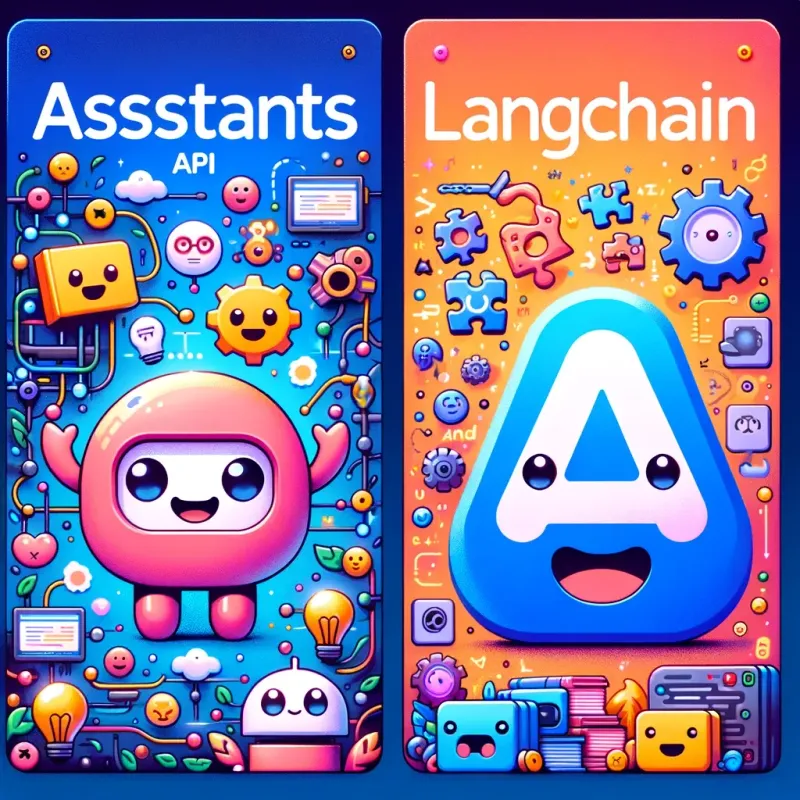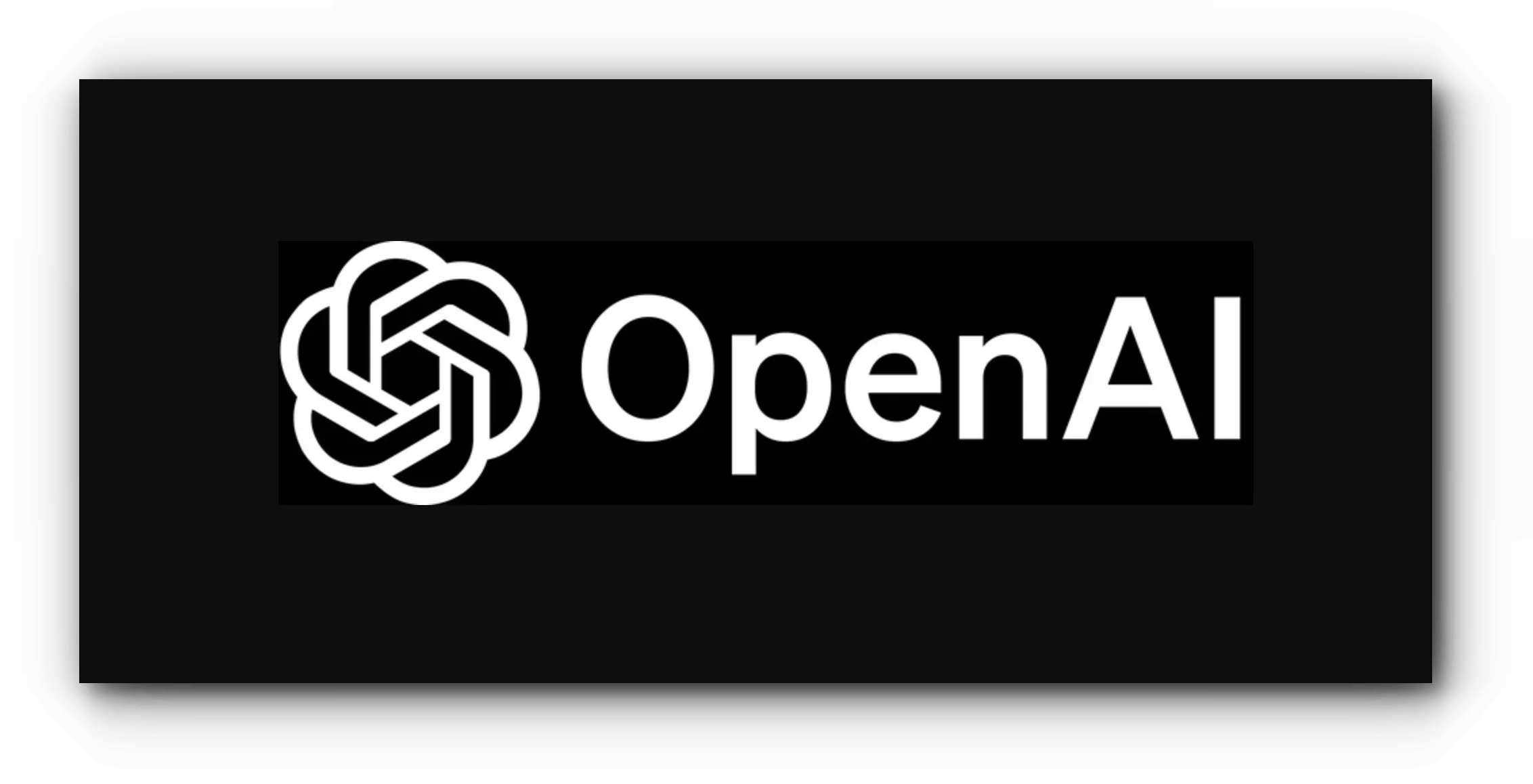Can Assistants API Replace LangChain?
- A workflow-first comparison of Assistants API and LangChain beyond feature checklists.
- You get practical criteria for what to use in prototyping and what to reinforce for production needs.

Before We Begin
The purpose of this article is to analyze whether OpenAI's Assistants API can replace LangChain as of February 2024. To do this, I'll first introduce LangChain and Assistants API, compare their main features, and then present my personal opinion on whether they can replace each other.
While both LangChain and Assistants API are tools that facilitate natural language processing (NLP) tasks, they have differences in their approaches and provided features. Understanding these differences is important for evaluating the replaceability between the two tools.
For those who have used both, this might be content you already know, but since OpenAI documentation makes no mention of LangChain, I've included simple explanations to aid understanding.
Let's start with a brief introduction to LangChain and OpenAI's Assistants API.
1. LangChain Introduction

LangChain is open-source and serves as a unified API layer for building LLM (Large Language Model) applications.
"LangChain" is an open-source library used for performing natural language processing (NLP) tasks using various programming languages, especially Python. This library provides high-level abstractions for multiple NLP models and tasks, supporting users in easily building and managing complex NLP pipelines. LangChain can be applied to various NLP-based projects such as conversational applications, document summarization, and question-answering systems.
Key features of LangChain include:
- Modularity and Scalability: Provides a modular framework that integrates multiple NLP models and technologies. Users can easily add custom models or modify existing ones as needed.
- Support for Various NLP Tasks: Supports various NLP tasks including text generation, classification, translation, and summarization.
- User-Friendly Interface: Through an easy-to-use interface, even users with limited programming experience can perform complex NLP tasks.
- Community and Openness: As an open-source library, it encourages community contribution and collaboration, allowing developers to contribute to source code or improve features.
LangChain can be usefully employed in various fields including education, research, and development, and is particularly useful for developers who want to easily integrate NLP functionality into Python-based projects.
RAG (Retrieval-Augmented Generation)
Services You Can Implement with LangChain
- Conversational Chatbots: Using Assistants API, you can create chatbots that can respond to various topics. These can be used for customer support, FAQ responses, daily conversations, etc.
- Educational and Learning Assistance Tools: You can develop interactive educational tools that provide customized learning experiences. Examples include language learning assistants, interactive explanations of historical events, Q&A about scientific concepts, etc.
- Voice Recognition Conversation Systems: Through Assistants API, you can integrate voice recognition functionality to implement voice-based conversation systems. Examples include smart home control systems operated by voice commands or personal assistant services.
- User-Customized Recommendation Systems: You can build systems that provide customized recommendations by analyzing user conversation content. Book or movie recommendations, travel destination recommendations, etc. are possible.
- Automatic Document Summarization and Analysis Tools: You can develop conversational tools that include functionality for analyzing and summarizing large amounts of text data. When users ask about specific documents, the system provides summaries of the relevant content.
Until now, you could develop services like the above through LangChain to use LLMs like ChatGPT for more diverse purposes, but OpenAI suddenly announced Assistants API.
As a side note, it's actually not sudden. This was expected behavior since OpenAI changed its core values to focus more on AGI development, but it was released faster than expected.
https://www.semafor.com/article/10/12/2023/openai-quietly-changed-its-core-values2. Assistants API Introduction

On November 6, 2023, OpenAI launched a new feature called Assistants API. Currently (as of January 2024), this API is still in beta version. Since the API or usage methods could change at any time, please check the link below for the latest related content.
Assistants API Overview - OpenAI
Assistants can receive instructions and use models, tools, and knowledge to respond to user queries. Currently, Assistants API supports three types of tools: code interpreter, retrieval, and function calling. In the future, more OpenAI-based tools will be released, and users will be able to provide their own tools on the platform.
To explore Assistants API functionality, you can use the assistant playground or build the step-by-step integration described in this guide. Generally, the flow of Assistants API integration is as follows:
Services You Can Implement
- Conversational Chatbots: Using Assistants API, you can create chatbots that can respond to various topics. These can be used for customer support, FAQ responses, daily conversations, etc.
- Educational and Learning Assistance Tools: You can develop interactive educational tools that provide customized learning experiences. Examples include language learning assistants, interactive explanations of historical events, Q&A about scientific concepts, etc.
- Voice Recognition Conversation Systems: Through Assistants API, you can integrate voice recognition functionality to implement voice-based conversation systems. Examples include smart home control systems operated by voice commands or personal assistant services.
- User-Customized Recommendation Systems: You can build systems that provide customized recommendations by analyzing user conversation content. Book or movie recommendations, travel destination recommendations, etc. are possible.
- Automatic Document Summarization and Analysis Tools: You can develop conversational tools that include functionality for analyzing and summarizing large amounts of text data. When users ask about specific documents, the system provides summaries of the relevant content.
It supports functionality similar to LangChain's Agent and is supported by OpenAI itself without library usage or setup.
Pricing
- As of February 2024, basic functionality is free.
- Specific features like code interpreter or retrieval have pricing policies applied.
Tools
Currently, Assistants API supports several basic tools:
- Code Interpreter: Writes and executes Python code in a sandboxed execution environment.
- Knowledge Retrieval: Tool for knowledge retrieval.
- Function Calling: Tool for calling specific functions.
Threads
- Manages memory automatically while adding messages.
- Like LangChain's memory functionality, it maintains conversation information within threads by compressing conversation content or deleting old content. LangChain Memory
Conclusion
- LangChain: Suitable when developers want to build customized NLP solutions tailored to their applications. Scalability and customization are important factors.
- Assistants API: Suitable for users who want to integrate advanced NLP functionality quickly and easily. Ease of use and the power of pre-trained models are key.
Each tool is designed for different requirements and use cases, so the choice may vary depending on the specific project's purpose and needs.
Too Early

The above image was created with ChatGPT using the keyword "too early." ChatGPT explains it as depicting a person standing under a tree where flowers haven't bloomed yet on a spring day, describing it as plain and lyrical lol
Back to the topic, I think Assistants API is still too early to use in actual services.
- Beta Version Limitations: Assistants API was released not long ago and is provided as a beta feature, which means some disadvantages or limitations exist.
- No Streaming Support: Currently, Assistants API doesn't support streaming, which could be a constraint for real-time data processing or large-scale data processing.
- Need for Continuous Status Checking: There's the inconvenience of having to continuously check thread or message status. This means the absence of automated management or monitoring tools.
- Absence of Management and Monitoring Tools: Currently, no tools or management functions are provided to easily view status. If a session status expires, that session disappears, requiring additional work to record history or logs separately.
These features not currently provided in the beta version may be available in future updates. These are areas where improvement is expected, and when these features are added, the usability and practicality of Assistants API are expected to improve significantly.
LangChain provides LangSmith and other additional services, and as OpenAI continues rapid updates, it's interesting to see LangChain and OpenAI influence each other to create new things.

![[Book Review] Learning LangChain: Implementing RAG, Agents, and Cognitive Architecture with LangChain and LangGraph](/_astro/review-learning-langchain-20250629212214926.MxZbPAfN.webp)
![[Book Review] LLM Service Design and Optimization - A Guide to Building and Operating AI Services with Lower Costs and Maximum Performance](/_astro/review-large-language-model-based-solutions-20250526192513013.ByDDXwMp.webp)